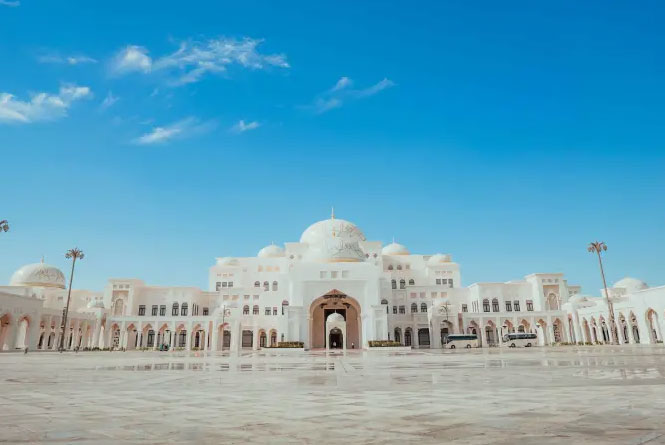Dubai has emerged as a global business hub, attracting entrepreneurs and investors from around the world. One of the most popular pathways to establishing a business in this vibrant city is through company formation in Dubai free zone. These specialized zones offer a streamlined, business-friendly environment that simplifies the process of setting up and operating a company. In this article, we will delve into five essential aspects of company formation in Dubai free zone, covering everything from benefits and steps to requirements and costs. By the end, you'll have a comprehensive understanding of why this option is a smart choice for many businesses and how to navigate the process effectively.

Dubai free zones are designated areas established by the government to promote foreign investment and economic diversification. They provide a regulated environment where businesses can operate with specific incentives, such as tax exemptions, full foreign ownership, and simplified administrative procedures. There are over 30 free zones in Dubai, each catering to different industries, such as technology, media, finance, and logistics. For instance, the Dubai Internet City focuses on IT companies, while the Jebel Ali Free Zone is ideal for trading and manufacturing. Company formation in Dubai free zone is designed to be efficient, with dedicated authorities handling licensing and registration, making it an attractive option for startups and multinational corporations alike. These zones also offer world-class infrastructure, including office spaces, warehouses, and connectivity, ensuring that businesses have the resources they need to thrive.
One of the primary reasons entrepreneurs opt for company formation in Dubai free zone is the array of benefits it offers. First and foremost, businesses can enjoy 100% foreign ownership, meaning there is no requirement for a local sponsor or partner, which is often necessary in mainland setups. This allows for complete control over operations and profits. Additionally, companies benefit from tax incentives, including zero corporate and personal income taxes for a specified period, often renewable. Another advantage is the ease of profit repatriation; businesses can transfer their earnings abroad without restrictions. Moreover, free zones provide custom duty exemptions on imports and exports, reducing operational costs. The infrastructure in these zones is top-notch, with access to modern facilities, logistics support, and networking opportunities. For example, the Dubai Multi Commodities Centre (DMCC) offers a dynamic ecosystem for traders. Overall, company formation in Dubai free zone positions businesses for growth in a strategic location that bridges East and West markets.
The process of company formation in Dubai free zone is straightforward but requires careful planning. Here are the typical steps involved:
Choose the Right Free Zone: Based on your business activity, select a free zone that aligns with your industry. For instance, if you're in media, Dubai Media City would be suitable, while Dubai International Financial Centre (DIFC) is ideal for finance-related businesses.
Determine the Legal Structure: Decide on the type of company, such as a Free Zone Establishment (FZE) or Free Zone Company (FZC), which affects ownership and liability.
Submit an Application: Apply to the free zone authority with details like business activity, proposed company name, and shareholder information. This often includes an online application.
Obtain Initial Approval: Once the application is reviewed, you'll receive initial approval, which reserves your company name and allows you to proceed.
Prepare and Submit Documents: Provide required documents, such as passport copies, business plan, and proof of address for shareholders.
Lease Office Space: Most free zones require a physical office or flexi-desk; secure this as per the zone's guidelines.
Pay Fees and Obtain License: After document verification, pay the necessary fees to receive your trade license, which permits you to operate legally.
This streamlined process for company formation in Dubai free zone can often be completed within a few days to weeks, depending on the zone and completeness of documents.

To ensure a smooth company formation in Dubai free zone, it's crucial to meet specific requirements. These vary by free zone but generally include:
Business Plan: A detailed plan outlining your business activities, market analysis, and financial projections.
Shareholder Documents: Passport copies, visa copies (if applicable), and proof of address for all shareholders and directors.
Company Name: A unique name that complies with the free zone's naming conventions, avoiding offensive or restricted terms.
Legal Structure Documentation: Depending on the entity type, you may need memorandum of association or similar documents.
Minimum Capital: Some free zones require a minimum share capital, though many have no mandatory amount; it's essential to check with the specific authority.
Approvals for Specific Activities: For regulated industries like healthcare or finance, additional approvals from relevant bodies may be necessary.
For example, in the Dubai Airport Free Zone, requirements include a no-objection certificate from current sponsors if applicants are residents. By understanding these prerequisites, you can avoid delays in company formation in Dubai free zone.
Understanding the costs is vital for budgeting when considering company formation in Dubai free zone. Expenses can vary based on the free zone, business activity, and scale, but typically include:
License Fees: These range from AED 10,000 to AED 50,000 annually, depending on the type of license (e.g., commercial, industrial, or professional).
Registration Fees: One-time setup costs, which can be between AED 5,000 and AED 15,000.
Office Space Rental: Costs for physical offices or flexi-desks start from AED 10,000 per year and can go up based on size and location.
Visa Costs: Each employee visa may cost around AED 3,000 to AED 7,000, including medical tests and permits.
Additional Charges: These might include document attestation, legal fees, and renewal costs.
For instance, in the Jebel Ali Free Zone, a basic setup for a trading company could cost approximately AED 20,000 to AED 30,000. It's advisable to request a detailed quote from the free zone authority to plan your investment in company formation in Dubai free zone effectively.
While company formation in Dubai free zone offers many advantages, it's not without challenges. Being aware of these can help you navigate the process more smoothly:
Choosing the Wrong Free Zone: Selecting a zone that doesn't align with your business activity can lead to operational issues. Research is key to match your industry with the appropriate zone.
Documentation Errors: Incomplete or incorrect documents can cause delays. Ensure all papers are properly attested and translated if necessary.
Understanding Legal Compliance: Each free zone has its own regulations; failing to comply can result in penalties. It's wise to consult with legal experts familiar with company formation in Dubai free zone.
Cost Management: Hidden costs, such as renewal fees or additional services, can strain budgets. Always ask for a breakdown of all expenses.
Cultural and Language Barriers: Although English is widely used, understanding local business customs can enhance operations.
By addressing these challenges proactively, you can maximize the benefits of company formation in Dubai free zone and build a successful enterprise.
Q1: What is the typical timeline for company formation in Dubai free zone?
A1: The timeline for company formation in Dubai free zone usually ranges from 3 to 10 working days, depending on the free zone and the completeness of your application. Some zones offer expedited services for an additional fee.
Q2: Can I operate outside the free zone after company formation in Dubai free zone?
A2: No, a company formed in a Dubai free zone is generally restricted to operating within that zone or internationally. To do business in the UAE mainland, you may need to establish a separate entity or work through a local distributor.
Q3: Are there any restrictions on hiring employees for company formation in Dubai free zone?
A3: There are no major restrictions; you can hire employees of any nationality. However, you must sponsor their visas through the free zone authority, and the number of visas often depends on your office space size.
Q4: What types of licenses are available for company formation in Dubai free zone?
A4: Common licenses include commercial (for trading), industrial (for manufacturing), and professional (for services). The choice depends on your business activity, and some free zones offer hybrid licenses for multiple activities.
Q5: Is it possible to renew or change details after company formation in Dubai free zone?
A5: Yes, you can renew your license annually and update company details, such as adding shareholders or changing activities, by submitting a request to the free zone authority and paying applicable fees.
In conclusion, company formation in Dubai free zone presents a lucrative opportunity for businesses seeking to tap into the Middle Eastern market. With benefits like tax exemptions, full ownership, and efficient processes, it's no wonder that many entrepreneurs choose this path. By following the steps, meeting requirements, and being mindful of costs and challenges, you can successfully establish and grow your company. If you're considering expanding your business horizons, company formation in Dubai free zone could be your gateway to success.










Zhuoxin Consulting relies on its Chinese service network and Dubai executive team to provide professional one-stop business services without communication barriers for Chinese companies to enter the Middle East market. Its business covers company establishment and maintenance, accounting and taxation, bank account opening, PRO services and business services.
Zhuoxin Consulting has high-quality business resources and maintains close cooperation with many free zones, bankers and tax departments in the UAE to escort your expansion in the Middle East market.
 Add WeChat
Add WeChat